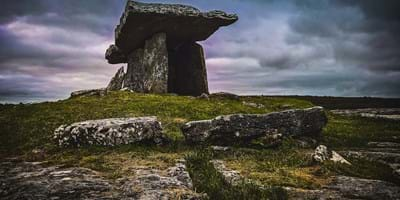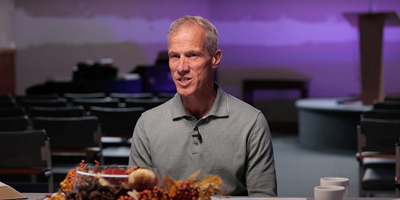Like many other festivals, the origins of Halloween cannot be identified with any certainty. There seems to be some credibility to the belief that, in the time of the Roman Empire, there was a pagan festival called “Samhain” that honoured the dead and involved sacrifices of animals. Then, around AD 600, Pope Boniface IV created All Saints’ Day, and Pope Gregory III later moved this holiday to November 1 to give a supposedly Christian alternative to the pre-existing pagan celebration. The premise for this was, that Christians who did not want to celebrate pagan festivals could celebrate honouring dead saints and martyrs.
The current name of “Halloween” originates from the day before All Saints’ Day, which was called “All Hallow Evening”. This evening, before All Saints Day which began the time of remembrance, gradually had its name changed to the current one, “Hallowe’en”.
I am doubtful whether many children or adults give any thought to the origins of Halloween, but it is somewhat ironic that the alternative to a pagan festival is now marked with dark demonic symbols and emblems.
Another irony is that in a culture that does not want to think about death we are faced with a host of images related to it and the evil characters associated with it. Although there is a façade of jocularity and jovialness about the season, any real consideration of or discussion on death and the life hereafter is frequently shunned.
The Christian, who only wants to celebrate and rejoice in a living Saviour, does not need to avoid the subject of death. At the end of his great discourse on the resurrection of Jesus Christ, Paul states that the Christian can say "O Death, where is your sting? O Hades, where is your victory?" (1 Corinthians 15:55).
This statement reads like a verse from a song that Christians could sing at any time but particularly as they pass through death. Death and hades are taunted. When believers die, they go to be with Christ (Philippians 1:23; 2 Corinthians 5:8). So death has lost its sting. Christians need not fear death, although the process of dying can be very painful. Death does not hold any terror for them because they know their sins have been forgiven and they are accepted by God because of their faith and union with His beloved Son, Jesus Christ. Death is a gateway that takes them to be with the Lord Jesus forever, in a place where there is no sin or death.
They can also mock hades (the place of departed souls) because for them it has no power to hold onto them. No ghosts, witches, wizards, or demons can capture them. The Lord Jesus Christ has secured for them eternal life with Him.
So, although it may seem like a victory for death when our bodies die and decay, it is actually a victory for the believer as they know the impact of death and decay will be completely reversed.
Can the believer engage with Halloween, then? Although they would not want to engage in dark pagan practices or seek to glorify demonic forces, this time of year can present an opportunity to speak to children and adults about the spiritual and life hereafter.
Christians can use this season to engage the unbelieving child or adult with the gospel of Jesus Christ. There is the reality of death that must be faced.
“And as it is appointed for men to die once, but after this the judgment” (Hebrews 9:27).
But the good news is that through Jesus Christ death and a coming judgement need not be feared. He has already faced it, in His death on the cross, for those who trust in Him.
"Most assuredly, I say to you, he who hears My word and believes in Him who sent Me has everlasting life, and shall not come into judgment, but has passed from death into life” (John 5:24).































